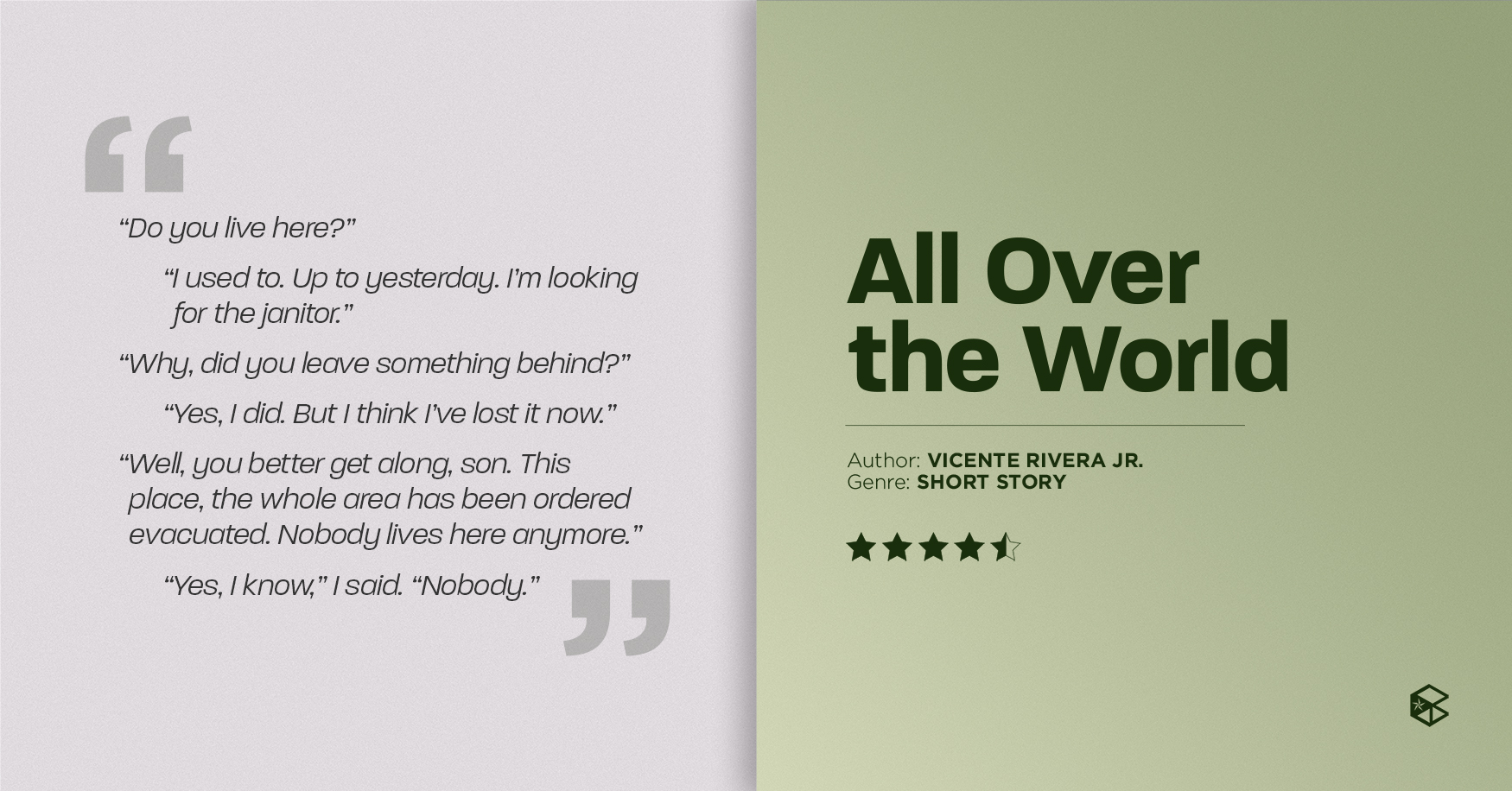How long would it take you to realize someone was important to you? When would you be ready to lose that person? Exploring the very concept of bittersweet goodbyes, Vicente Rivera Jr.’s All Over the World takes us back to the difficult times of war back in August 1941.
The story is narrated from the point of view of Felix, a 21-year-old man living in a crumbling apartment building in front of a movie theater. When he returned home from a long day’s work, he met a young girl in the sixth grade named Maria, another resident of the building. He found her reading a book that he owned, and upon seeing her curiosity he lent it to her, beginning what he considered a friendship.
Throughout the story, they only converse on three separate occasions, not giving us much context as to why these brief interactions of theirs bore so much importance to Felix. However, Felix speaks of his encounters with Maria as if she had been in the right place at the right time. There was a certain aspect of peculiarity that she brought along with her that made him look forward to seeing her again. It is heavily implied that Felix cared a great deal for Maria—as if he wanted to protect her innocence at a time of war.
Leaving without a trace
Towards the end of the story, Felix is informed that Maria’s family plans to leave the building. He then tells her that he’ll save his goodbyes for Maria when he returns from work. However, upon arriving at the place she said they were moving to, she was nowhere to be found. His last exchange with a volunteer who was clearing out the building where Maria’s family would move to, captured the disappointment and heartbreak that swirled inside Felix when he realized he hadn’t gotten to say a proper goodbye.
“Do you live here?”
“I used to. Up to yesterday. I’m looking for the janitor.”
“Why, did you leave something behind?”
“Yes, I did. But I think I’ve lost it now.”
“Well, you better get along, son. This place, the whole area has been ordered evacuated. Nobody lives here anymore.”
“Yes, I know,” I said. “Nobody.”
Rivera captures what seems to be a lifetime of heartache within a few hundred words—having Felix narrate his experience while keeping it short, leaves us wanting more—similar to Felix. Having something or someone that provides a sort of odd stability to your life, and then having it taken away from you so soon, can be agonizing. This is how we perceive our relationships that have left our lives as quickly as they’ve entered them.
Not wanting to leave something behind, when we see them as things that can potentially be part of our lives for the long run, is only normal. Yet, there’s a certain beauty of the inevitability of abrupt farewells that was captured in the story. Felix, in a sense, represents the human desire for a connection with something tangible, while Maria is a representation of something momentary that we get to experience and are forced to let go of, whether we like it or not.
All Over the World captures the realness of words unsaid, and helps us understand that we can’t prolong saying goodbye to things that we know we must let go of. We can’t continue to hold on to this idea that everything will stay the way it is. We have to prepare ourselves for even the smallest possibility that things can be taken away from us at any time—we must speak our truths, before we have to inevitably have to let them go.
Read the story for yourself here.


